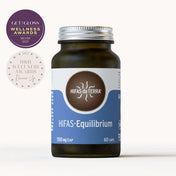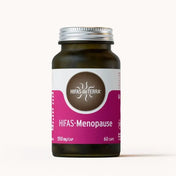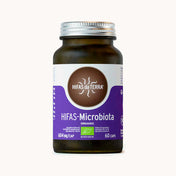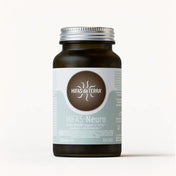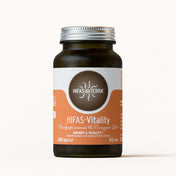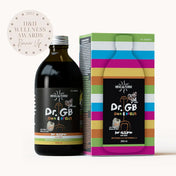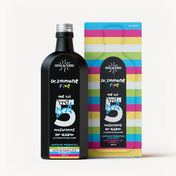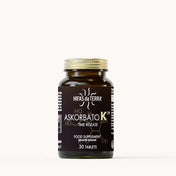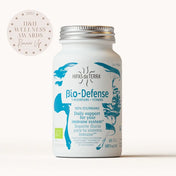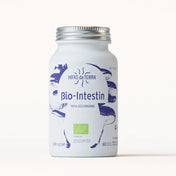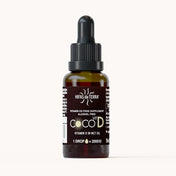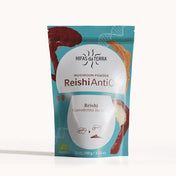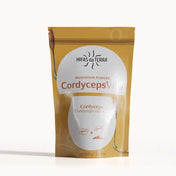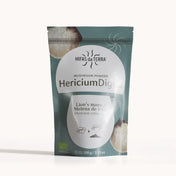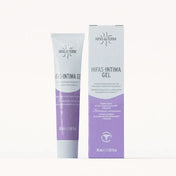Although symptoms similar to those produced by inflammatory intestinal disease (EII) - abdominal body, swelling, diarrhea, altered intestinal transit, etc. - would be among the disorders consulted to the most common doctor, diseases that affect the upper intestinal tract such as gastritis, peptic ulcer, or bacteria infection Helicobacter pylori They are also very frequent. In fact, this bacterium is not only one of the most prevalent human pathogens, infecting 50% of the global population, but can also cause serious diseases such as peptic ulcers, gastric cancer and lymphoma <1>.
Helicobacter pylori: Among the most frequent digestive problems
For the treatment of these ailments, doctors use protons H. pylori. And although antibiotics can be effective, European experts warn of increasing the inefficiency of this type of therapies, something that they associate with the growing presence of strains resistant to these antibiotics <2>.
Treatments and foods that help improve digestive health
Due to the ineffectiveness of conventional treatments, it is increasingly frequent than health professionals and patients seek effective alternatives against digestive health problems. Thus, improvements can be obtained through specific diets or through the use of natural products. The fungus Hericium Erinaceus It begins to associate with improvements at the digestive level since various scientific studies endorse your interest <3>. Let's see why.
Professional area
Exclusive space for health professionals
Hericium erinaceus, History and research
- The fungus Hericium Erinaceus It grows naturally in Europe, Asia and North America.
- Hericium Erinaceus It has a long history of use in traditional oriental medicine, particularly in China, Korea and Japan <3>.
- One of its best -known traditional uses is in support of the digestive system, especially in the case of gastric ulcers or gastritis <3>.
- The scientific research carried out in recent years suggests that the lion's mane has beneficial effects on gastric mucosa, protects against ulcers and is able to inhibit the growth of Helicobacter pylori.
Scientific evidence
In particular, two studies carried out by Chinese researchers In vitro (In laboratory, outside the stomach) they showed that Leon's hair extracts are capable of inhibit the growth of H. pylori, in addition to other pathogenic bacteria such as Staphylococcus aureus <4, 5>.
Another recent study conducted in human cell models with chronic atrophic gastritis showed that Hericium extract inhibited the multiplication of immune cells involved in inflammation <6>.
Studies were also carried out in animals in which it has been shown that the excerpts of Melena de León were capable of protect against gastric ulcers by reducing the affected area with respect to unrelated animals <7>. Not being H. pylori The causative agent of these ulcers in the study is suspected that the effects of the León hair extend beyond the simple inhibition of the growth of this bacterium.
With the previous results and the great interest raised by the first checks, studies have already been initiated in patients who open the way to begin confirming these good results. Specifically, in a study with patients affected by chronic atrophic gastritis it was shown that treatment with a lion hair was able to relieve superior abdominal pain and improve parameters such as dysplasia and inflammatory infiltration <8>.
Mycology applied to health
In Hifas da Terra we develop formulas
From the fungi we investigate.
Central digestive and nervous system link
In terms of research, new borders are opened in the light of clinical observations that relate the digestive and nervous systems of the organism <9> very closely. Thus it is suspected, for example, that the Intestinal Microbiot can be involved in depressive disorders <9>, so it would be interesting to be able to modulate it to correct these disorders. In this regard, there is a recently interesting study conducted in menopausal women with a lion hair in which the ability of this fungus was demonstrated to reduce depression and anxiety rates <10>.
In summary
Studies like this show the great medicinal potential presented by León's hair, far beyond its traditional applications.
References
- Ayala G, Escobedo-Hinojosa Wi, from La Cruz-Herrera CF, Romero I (2014). Exploreing Alternative Treatments for Helicobacter pylori Infection World J Gastroenterol 20 (6): 1450-69.
- Malfertheiner P, Megraud F, O'Morain Ca, Atherton J, Axon At, Bazzoli F, Gensini GF, Gisbert JP, Graham Dy, Rokkas T, El-Romar Em, Kuipers Ex; European Helicobacter Study Group (2012). Management of Helicobacter pylori INFECTION-HE MACHERRICH IV/ FLORENCE CONCENSUS REPORT. GUT 2012 May; 61 (5): 646-64.
- Wang M et al. Hericium Erinaceus (Yamabushitake): Unique Resource for Developing Functional Foods and Medicines. Food Func. 2014 Dec; 5 (12): 3055-64.
- Shang X et al. In vitro anti-helicobacter pylori effects of medicinal Mushroom extracts, with spectial emphasis on the lion's male mushroom, hericium erinaceus (Higher basidiomycetes). Int J med mushrooms. 2013; 15 (2): 165-74.
-
Liu Jh et al. Anti-Helicobacter pylori Activity of Bioactive Components isolated from Hericium Erinaceus. J ethnopharmacol. 2015 SEP 10. PII: S0378-8741 (15) 30130-6. DOI: 10.1016/J.JEP.2015.09.004.
- Wang M et al. A Polysaccharide from Cultured Mycelium of Hericium Erinaceus and ITS anti-chronic atrophic Gastritis Activity. Int j biol macromol. 2015 Nov; 81: 656-61. DOI: 10.1016/J.IJBIOMAC.2015.08.043. EPUB 2015 Aug 24.
- Wong Jy et al. Gastroprotective Effects of Lion's Ma Mushroom Hericium Erinaceus (Bull.:Fr.) Pers. Evid Based Complement Alternat Med. 2013; 2013: 492976.
- Xu CP, Liu WW, Liu FX, Chen SS, Liao FQ, Xu Z, Jiang LG, Wang Ca, Lu XH (1985). To Double-Blind Study of Effectiveness of Hericium Erinaceus Pers Therapy on Chronic Atrophic Gastritis. To preliminary report. Chin Med J (ENGL) 98 (6): 455-6.
- Evrensel A, Ceylan Me (2015). The Gut-Brain Axis: The Missing Link in Depression. Clin Psychopharmacol Neurosci. 2015 Dec 31; 13 (3): 239-44.
- Nagano M, Shimizu K, Kondo R, Hayashi C, Sato D, Kitagawa K, Ohnuki K (2010). Reduction of Depression and Anxiety by 4 Weeks Hericium Erinaceus INTAKE. Biomed Res. 2010 Aug; 31 (4): 231-7.

